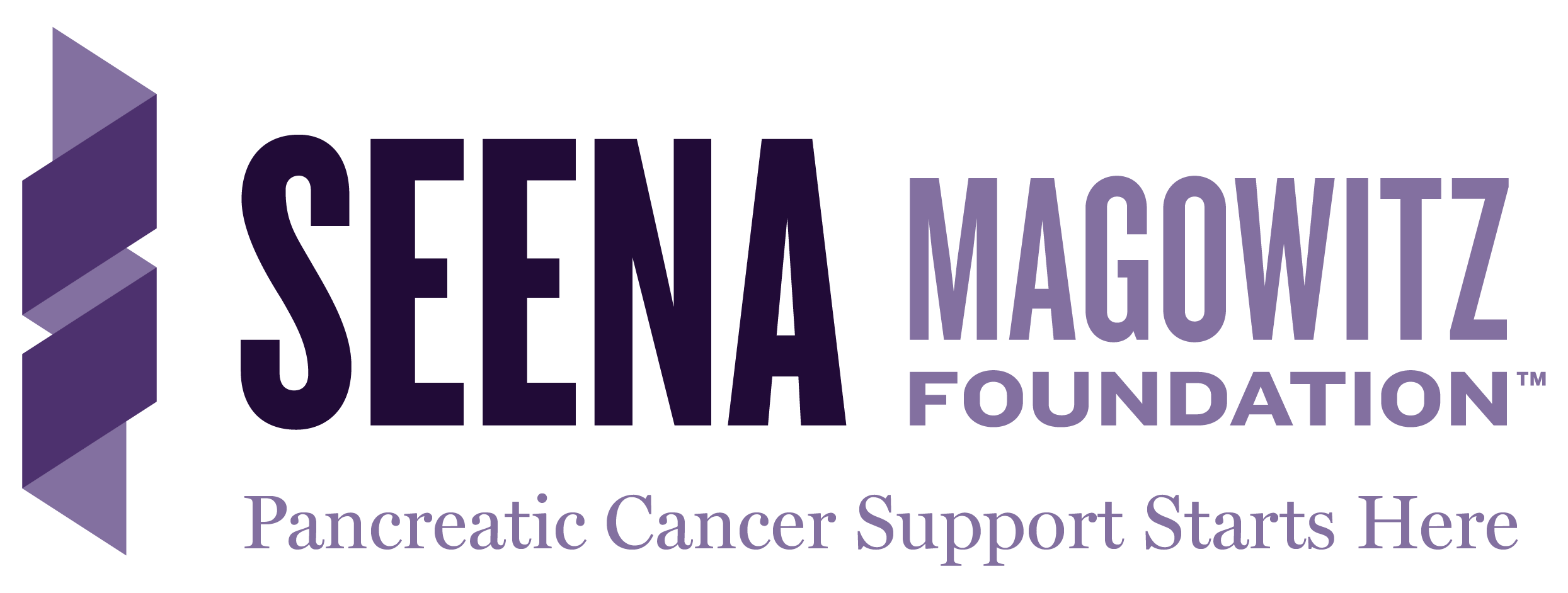Newly
diagnosed
with
pancreatic
cancer?
Start Here
What we do
The Seena Magowitz Foundation unites Patients & Caregivers with Medical Rockstars at World Class Institutions so they can continue to survive and thrive.
We invite you to join our online community at pancreaticcancersos.org. Virtual meetings take place on the second, third and fourth Monday of each month, offering tailored support for the newly diagnosed as well as caregivers and our broader community of patients and survivors.
It is a dedicated approach focusing on wellness, hope, and inspiration. We are committed to helping our members heal and thrive in every respect – from the physical to the emotional and everything in between.
Join Our Support Groups
WARRIOR STORIES
Kay Kays: A 31-Year Pancreatic Cancer Survivor
One of the longest-living pancreatic cancer survivors, Kay first began battling the deadly disease back in 1994, after suffering severe back pains. Initially, she was thrilled to find out she wasn’t dealing with gallstones, but her joy was short-lived. She soon learned, thanks to the help of some diligent interns, that she had pancreatic cancer. Likening the diagnosis to “getting hit by a freight train,” she had little time to let the news sink in before finding out she was a candidate for the Whipple procedure, which involved, as she put it, an “extensive re-plumbing of the digestive system.”
Read Kay's Full StoryUPCOMING EVENTS
POWER OF US 2025
Honorary Chair Doctor Douglas Evans
Join us in Milwaukee for the Annual Power of US 2025 Patient Conference August 15th -17th.
Our 3 day event will include a meet and greet reception on Friday night at the Harley-Davidson Museum, Dinner on the Diamond Saturday night at American Family Field where everyone will be treated to a special guest speaker. The patient conference will be at the Westin Milwaukee and there will be a optional lab tour at the Medical College of Wisconsin.

LEARN MORE ABOUT THE SEENA MAGOWITZ FOUNDATION
We are Patient-Centric, providing a direct line to personalized care, support and hope to those affected with Pancreatic Cancer
For 23 years, the Seena Magowitz Foundation has been a beacon of hope for thousands of families affected by pancreatic cancer. Weʼve provided crucial support to patients, survivors, caregivers, and their loved ones, helping them lead better, longer lives and offer hope in what often feels like a hopeless situation following a diagnosis.
OUR ROSTER OF ROCKSTARS

Douglas B. Evans MD, FACS
Chair of Department of Surgery Medical College of Wisconsin

Erkut Borazanci, MD, MS
Leader of The Pancreatic Cancer Detection Consortium HonorHealth Research Institute

Jen Jen Yeh, MD
North Carolina School of Medicine Division of Surgical Oncology

Daniel Von Hoff, MD, FACP
TGen Executive Vice President Molecular Medicine Division

Peter Hosein, MD
Sylvester Comprehensive Cancer Center University of Miami Health

Susan Tsai, MD, MHS, FACS
Chief of Surgical Oncology Ohio State James Cancer Hospital
Where do I turn to next? don't worry, We're here to help.
We know a diagnosis can be scary, but stay calm. The Seena Magowitz Foundation provides a direct line to personalized care, support and hope to those affected with pancreatic cancer. If you would like to speak with someone immediately, call us at 1-(808)-500-5020 or email us info@seenamagowitzfoundation.org.





